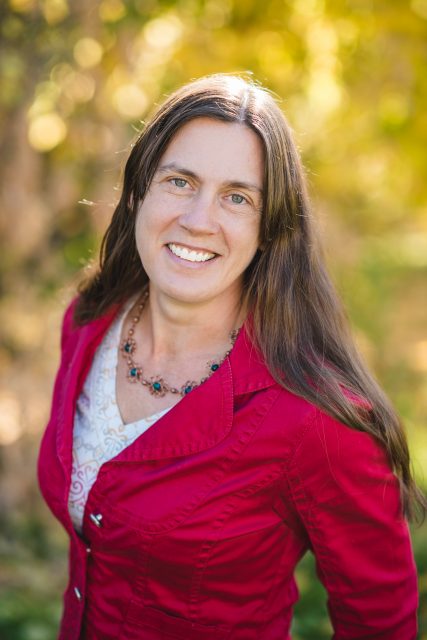 A guest post by Mette Harrison
A guest post by Mette Harrison
For those of us who have gone through a faith transition out of (or within) Mormonism, there’s often a heavy price to pay when the truth comes out. That price is paid in the coin of family intimacy.
I’ve probably dealt with fewer consequences than others. My parents and siblings still talk to me, and my in-laws still invite me to Thanksgiving Dinner.
But things are strained. There are rules to follow. Often I’m the one who’s asked to be quiet to make things go more smoothly, or to simply step out when conversations veer into “miracle” or “obedience” territory, often a trigger for me. I’m keenly aware of the fact that admitting to not believing in Mormonism anymore marks me as weak, even evil, in their eyes. And so I’m the one who has to make compromises to continue the relationship. They’re not going to meet me where I am.
But I’ve been on the other side of this equation too, and I remember what it felt like. My youngest sister left Mormonism almost twenty years ago, listed herself as “dead” on our family website, and sent a letter telling us that she didn’t want to have any relationship with us again.
That was my first experience with someone in my family leaving the church. I was shocked and dismayed. I was on the side of the family continuing to toe the righteous line. Eventually, some contact was re-established with this sister, but only with those family members who were willing to listen to her tell us about the evils of Mormonism.
The second time when my oldest sister (a former missionary and recent Primary President) left about ten years ago, I was more even shocked because I’d had a good relationship with her (I thought) and she also asked the family not to contact her in any way—ever again.
This was my forever family. How was this happening?
But when I went through my own faith crisis a short time later, I began to see how difficult it is to maintain the same relationships, especially close family ones that are often tied to the church, and especially in the very angry early stages of transition. There can be reconciliation, but it has to be on different terms. Once I’d given up the idea of an afterlife, the celestial kingdom, judgment, and more, the sense of “family” I’d once had for my blood relatives was gone. For most of my life, Mormonism was all about being in heaven forever with your family, sometimes even if you don’t like certain family members. The idea is you’ll all be perfected and love each other up there. Except I rejected that idea, along with the Mormon God I’d once believed would force us all to be happy together.
So what now?
Well, what happened for me more immediately was that I began to rebuild my sense of family with people who weren’t related to me. I suspect everyone who has been through a faith transition away from family has done the same thing and they already know all about it. But in case you’re still in the midst of it, let me offer you hope, because it’s not all bad, losing your old family and having to assemble a new one. (There is even hope after a few years that you can find some family members who will still be interested in a more limited, boundaried relationship, but that may or may not come for many.)
I focus on my new “family” a lot now. I draw that chosen family of friends close around me each night in my gratitude practice, imagining them all with me and feeling their love. It’s not the same as having my blood family love me the way that I am—it’s a whole lot better.
These people have often been through a similar faith transition in Mormonism—they include ex-Mormons, post-Mormons, nuanced Mormons. Some are Mama Dragons, the group of mothers of LGBT youth who’ve banded together to offer each other and children support. But there are also other religions in the mix. One of my dear family-friends is a Catholic who was raised Baptist and has some Mormon family, as well. Some of my dearest friends are atheists (honestly, they can be extremely peaceful and calming to be around—as long as you don’t talk politics). I’ve made some dear friends in the autistic community, as I’ve come out about that diagnosis. Occasionally runners and triathletes make the list, though I tend to be kind of solitary at sports. And there are writer friends of all stripes because we have a special weirdness to share.
My point here isn’t necessarily to offer suggestions for where you might find new friends, but only to reassure you that if you are a Mormon or post-Mormon who is feeling bereft around the holidays, family is out there, waiting for you to see it and embrace it. Our friends holiday dinners are wonderful and every bit as tender as traditional family ones. I won’t say that I never miss the old days with family before I transitioned, but I’m so filled with love that I don’t feel the loss often. To use religious terminology, I feel so very blessed by my new associations. If I believed in the kind of interventionist God I once did, I’d say I thought he led me to these new people who have my back and show up for me when I need them so often, either online or in person. There’s loss, yes, but there’s also this new growth.
If there’s one lesson that I still believe in from my old days of religion, it’s this: every death brings a new life. The death of the old me led to the new me, and to my new family.
And I’m good with that. Someday, maybe you will be, too.






